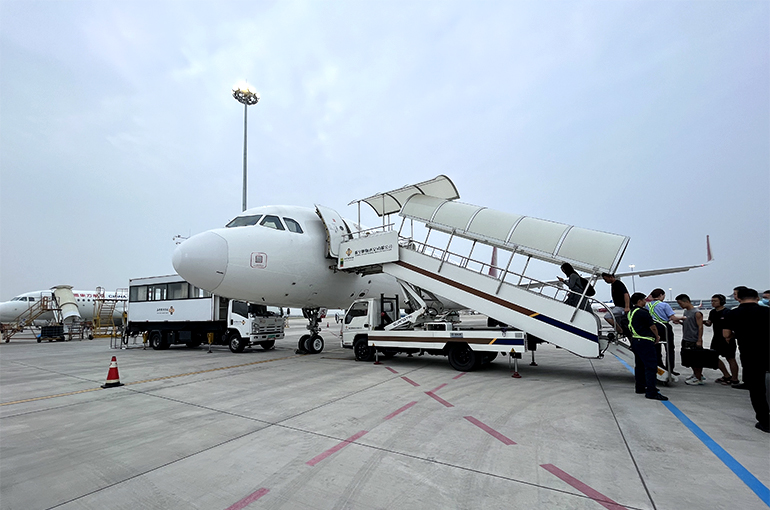 Chinese Airlines Struggle to Raise Fares Despite Surge in Summer Travel Demand
Chinese Airlines Struggle to Raise Fares Despite Surge in Summer Travel Demand(Yicai) Sept. 2 -- Chinese airlines are having difficulty raising their prices despite record numbers travelling over the summer months amid tight capacity, as travelers remain very price sensitive. This continues to put pressure on carriers’ earnings.
China’s civil aviation industry logged a 12 percent jump in the number of passengers from July to August from the same period last year to 140 million people, or an average of 2.2 million per day, according to statistics recently released by flight booking platform Umetrip. This is an 18 percent increase from the same period in 2019 before the pandemic.
The number of passengers peaked at 2.45 million on Aug. 10, setting a record for the number of people travelling by air in a single day, according to information released earlier by the Civil Aviation Administration. And until Aug. 20 there were more than 2.3 million passengers a day in August.
But despite the big jump in passengers, airline capacity did not increase much over the summer. The number of flights only climbed 7 percent from a year earlier, and 9 percent from 2019, to one million, according to data released by flight information platform DAST yesterday.
And despite the relatively tight capacity, air ticket prices this summer were much lower than a year ago. The average price of an air ticket on a domestic route, excluding tax, plunged 10.7 percent over the summer from a year ago, according to Beijing-based Umetrip. The prices gradually increased at first, but then tumbled over the period.
“As soon as the price of air tickets goes up, the load factor comes down,” a marketing officer at an airline company told Yicai. Compared with last summer, passengers are more sensitive to price. If it costs more to fly, they will choose to take the train. Competition between airlines is also quite fierce.
So even though the number of passengers has gone up, carriers’ revenue has not. This trend was obvious even before the summer months, as the revenue per passenger kilometer, which is the income derived per passenger to travel one kilometer, for many listed airlines in the first half was lower than the same period last year, according to their semi-annual reports.
Flagship carrier Air China’s revenue per passenger kilometer, for instance, plummeted 12.5 percent in the first six months year on year to CNY0.536 (USD0.076). While that of budget carrier Spring Airline sank 2.48 percent to CNY0.393.
“This summer, prices have been tumbling across the travel sector,” according to a recent report by travel agency Ctrip. The price of domestic air tickets has plunged about 10 percent year on year, that of outbound international flights has dived by more than 10 percent, and that of hotels has slumped by under 10 percent.”
It may be difficult for air fares to rise in the short term. Air tickets and hotel bookings from early September to the Mid-Autumn Festival holiday, which runs from Sept. 15 to Sept. 17 this year, are between 20 percent and 30 percent lower than during the summer, Shanghai-based Ctrip said.
“The average price of air tickets before the Mid-Autumn Festival has dropped a lot from the summer, reflecting the uneven demand in the off and peak seasons,” said Xiao Peng, researcher at Qunar Big Data Research Institute. From the beginning of September to the National Day holiday, which falls in the first week of October, there will be a big drop in the number of passengers from the summer, which will continue to put pressure on ticket prices.
Editor: Kim Taylor